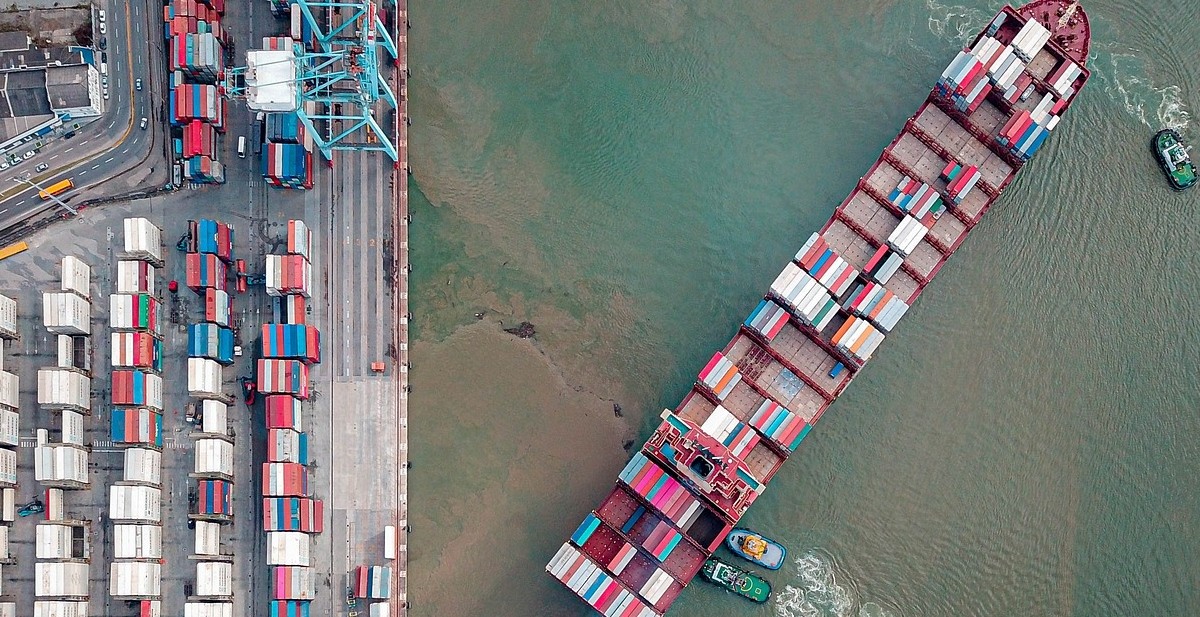Economic recovery stutters towards 2024

Short- and long-term risks jeopardise shipping’s progress
By Carly Fields
“Pervasive pessimism” could hold back any meaningful economic recovery through to 2024, according to the latest Global Risks Report from the World Economic Forum (WEF).
The report, which included responses from 1,000 global experts and leaders, found that there was limited hope in an accelerated global recovery towards 2024 (11%), while 89% perceived the short-term outlook to be volatile, fractured, or increasingly catastrophic. Further, 84% of respondents expressed negative feelings about the future in that they were “concerned” or “worried”. “Pervasive pessimism could create a cycle of disillusionment that makes galvanising action even more challenging,” said the report.
Respondents listed the top long-term risk as the climate crisis, while heightened cyber risks, an uneven global recovery, societal divides, livelihood crises and mental health deterioration were all concerns for the short term.
The shipping industry is facing increasing pressure to transition to net-zero, in tandem with world economies. Here, the report warns that while an “aggressive and rapid transition” would alleviate long-term environmental consequences, it could have severe short-term impacts, for example putting millions of carbon-intense industry workers out of jobs or triggering societal and geopolitical tensions. “By contrast, a slower but more orderly transition would prolong environmental degradation, structural fragilities and global inequalities,” said the report. It also warned of divergent trajectories across countries and sectors which are creating barriers to collaboration and co-operation.
Peter Giger, group chief risk officer of Zurich Insurance Group, a strategic partner to the report, described the climate crisis as “the biggest long-term threat facing humanity”. “Failure to act on climate change could shrink global GDP by one-sixth and the commitments taken at COP26 are still not enough to achieve the 1.5 degrees C goal. It is not too late for governments and businesses to act on the risks they face and to drive an innovative, determined and inclusive transition that protects economies and people.”
Cyber world
Cyber threats should also be keeping shipping executives up at night.
The report revealed that malware increased by 358% in 2020, while ransomware increased by 435%, with a four-fold rise in the total cryptocurrency value received by ransomware addresses. Further, the emerging “ransomware as a service” model is allowing non-technical criminals to execute attacks, a trend that the WEF believes might intensify with the advent of artificial intelligence-powered malware.
Carolina Klint, risk management leader, Continental Europe, for Marsh, another strategic partner to the report, said: “As companies recover from the pandemic, they are rightly sharpening their focus on organisational resilience and ESG credentials. With cyber threats now growing faster than our ability to eradicate them permanently, it is clear that neither resilience nor governance are possible without credible and sophisticated cyber risk management plans.”
Klint also advised that companies start understanding their space risks, particularly in relation to the satellites that industries, including shipping, rely on. “Threats—such as a massive solar storm or jamming or spoofing of GPS satellites—could cause the internet to slow, navigation systems to fail, and controls for energy grids, water or transportation to crash. Ripple effects across societies could be extensive, even for a few seconds of disruption,” said the report.
Additionally, attacks on critical infrastructure, misinformation, fraud and digital safety will impact public trust in digital systems and ultimately increase costs for all stakeholders, including those in shipping. “As attacks become more severe and broadly impactful, already-sharp tensions between governments impacted by cybercrime and governments complicit in their commission will rise as cybersecurity becomes another wedge for divergence, rather than co-operation, among nation states,” said the report.
Social and space
Other short-term threats present a socioeconomic risk to shipping. Social cohesion erosion, livelihood crises and mental health deterioration are seen as the most concerning threats to the world over the next two years by respondents. “Societal scarring” compounds the challenges of national policy-making and limits political capital, focus from leaders, and the public support needed to strengthen international co-operation on global challenges, warned the report.
Meanwhile, enforced migration already impacts shipping in busy shipping lanes, such as the English Channel, where migrants make the risky crossing in search of a better future. This risk is expected to increase as economic hardship, the worsening impacts of climate change and political persecution force millions more to leave their homes.
Increased space exploration is also raised as a significant risk, with a rapid increase in public and private activity in recent years.
The most immediate consequence of increased space activity, according to the report, is a higher risk of collision between near-Earth infrastructure and space objects, which could affect orbits, damage valuable space equipment, or spark international tensions. But there could be longer-term effects which would have even greater impact on industry: “There are also significant unknowns about the impacts of rapid space development on Earth’s environment—including damage to the ozone layer, butterfly effects from black carbon (soot) emissions, and possible alterations of the polar jet stream.”
The risks identified by the WEF report are wide-ranging and varied, but almost all have applicability to global shipping as the industry steers its path through the 2020s.
To read the WEF The Global Risks Report 2022, go to www.weforum.org/reports/global-risks-report-2022.